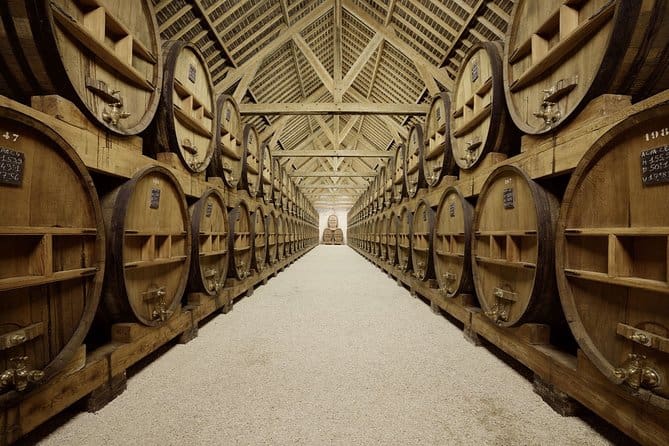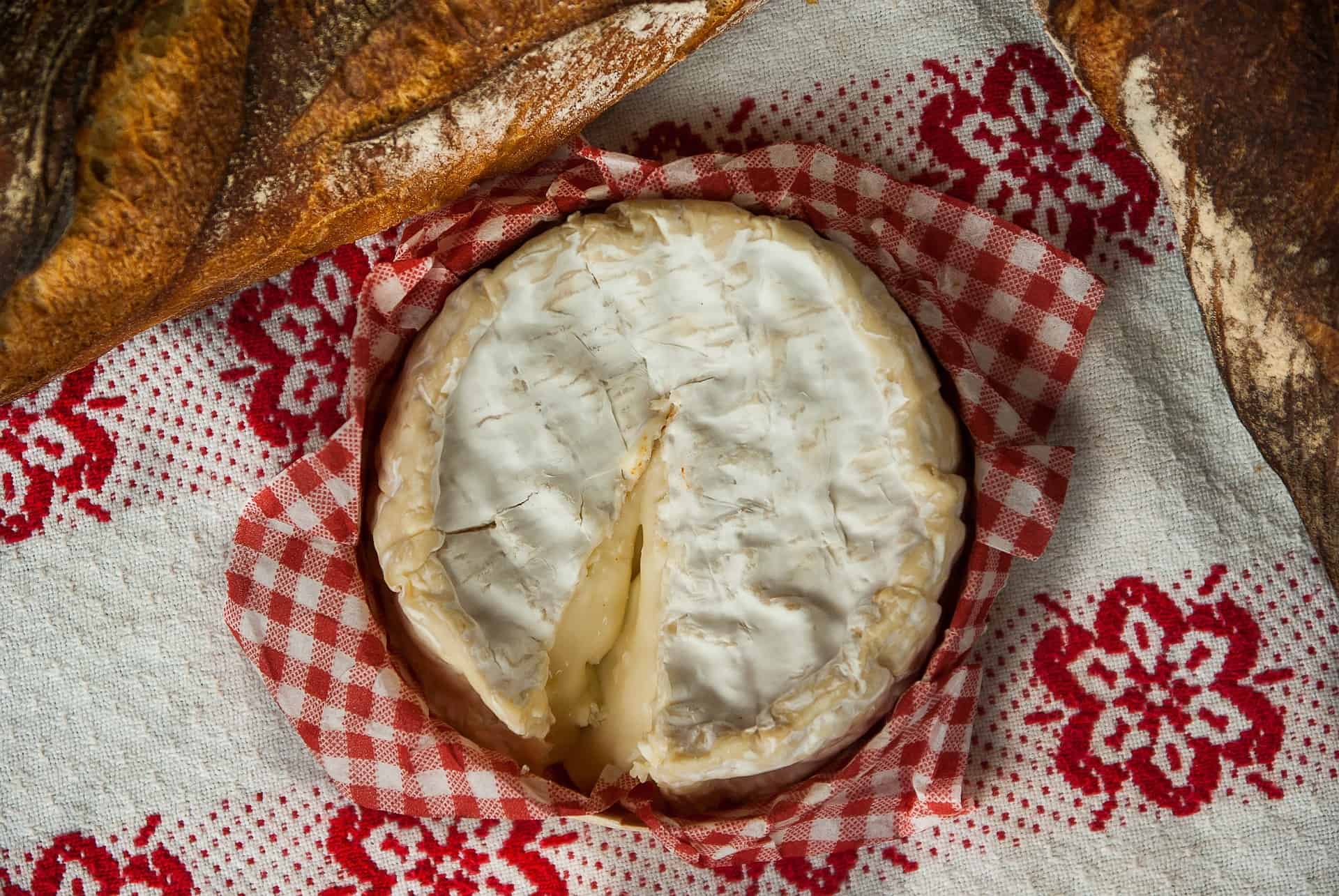When it comes to great cheese, seafood, and amazing meat, one region of France comes to the mind of most French people: The Normandy region.
Yes, about 2 hours drive north of Paris, nestled between the medieval city of Rouen to its south, to the north the Flowered coast with its elegant houses and horse racetracks, and west, the Normandy D-Day Beaches and the Mont St Michel, Normandy, is The Foodie Region of France.
Most people have heard about Camembert cheese, but very, very few, even among fellow Normands, know that it all started with a village called Camembert.
Here’s how to plan the ultimate foodie itinerary for Normandy.
Here is an overview:
- Start Your Foodie Itinerary for Normandy by Visiting Camembert, March to October (Morning visit)
- Lunch by the Watermill near Lisieux
- Calvados, the liquid gold of Normandy (Apple Brandy)
- La Spiriterie Française at Le Breuil en Auge
- Calvados Experience
- An Ice-Cream in Honfleur
- Les Glaces de La Ferme du Bois Louvet
- Normandy Food Tour
- What to Expect on your Normandy Food Tour
Start Your Foodie Itinerary for Normandy by Visiting Camembert, March to October (Morning visit)
Yes, around 1790, according to the local stories, a young bishop, bishop Bonvoust, leaving the furor of the French Revolution, arrived, exhausted and starving, in the small village of Camembert.
There he met a young woman who had just lost her husband by accident. Maybe to an angry bull, who knows?
Anyway, she offered the bishop a safe refuge and step by step, they improved their cheese-making skills. Back then, most women made cheese, cream, and butter at home, and ministers used to have the privilege of aging and refining soft cheese.
Almost a century later, their grandson, Victor Pesnel, upon the arrival of the Emperor of France, Napoleon III, at the nearby town of Vimoutiers, gave the emperor a cheese as a gift from the region. The emperor, delighted by its unique flavor, asked where it came from. The answer came as a burst from Victor Pesnel, Camembert!
There it was. The cheese had its name.
Now, for those who want to know more about the iconic cheese of France, you should definitely visit Camembert. Camembert is a lovely village about a 1-hour drive from Caen or Bayeux. It is a really picturesque place.
There, you can visit the House of Camembert, a museum dedicated to the history of the famous cheese. You will learn about the history and the importance of the Terroir or the place where it is made.
Camembert is now a product of a designated origin or AOP product. The real Camembert has to be made using only Normandy cows, the brown spotted ones with brown around their eyes.
We call these their goggles. Smart cows.
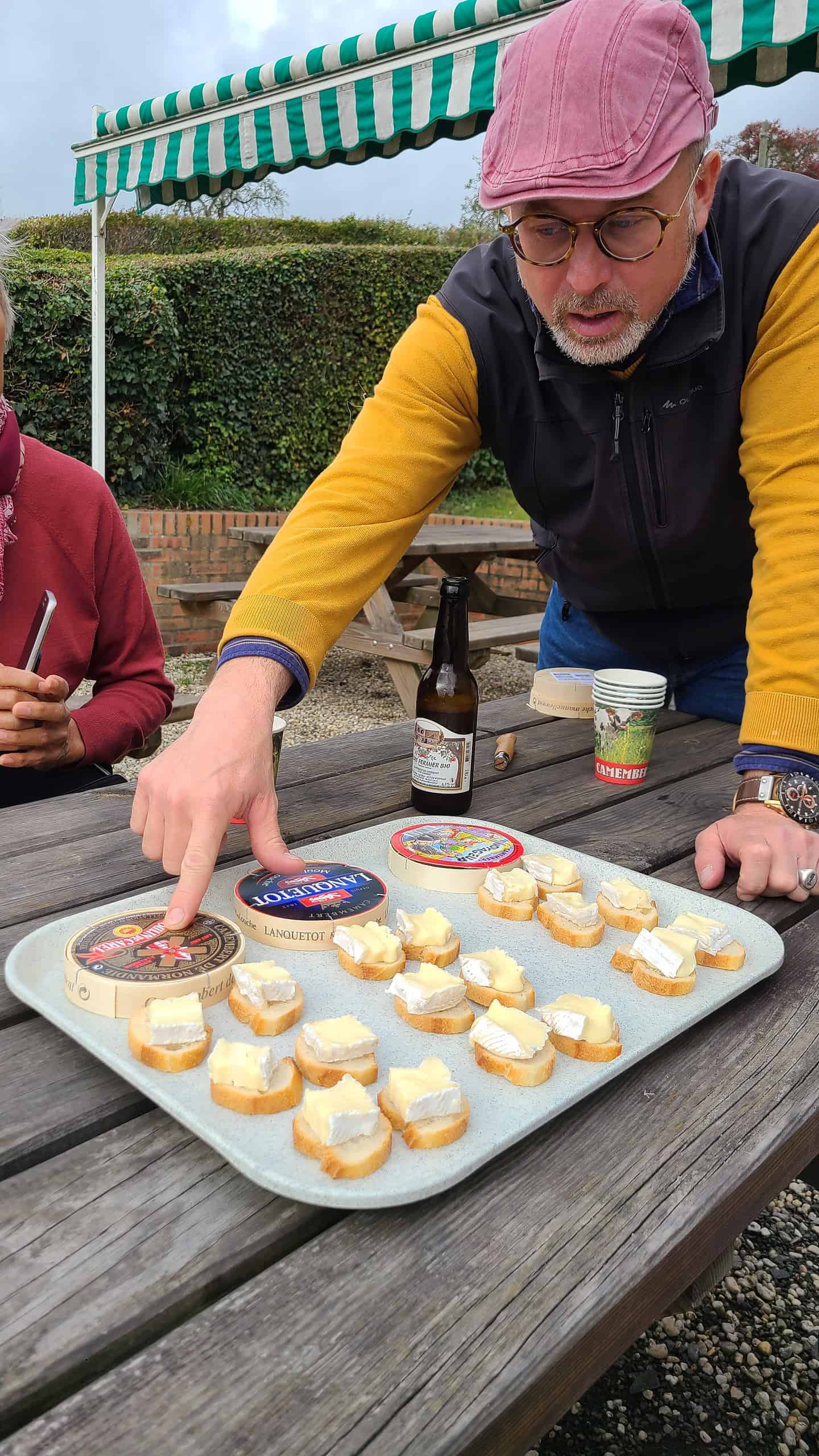
Since 2021, in Camembert, you can also attend the production of the iconic cheese. A small farm was opened in the village, allowing visitors to check the whole production. The factory works only on week mornings. It is a very small factory with just four employees, so they open only in the morning.
For now, their annual production is set at 25,000 cheeses per year. They own all their cattle and process their raw milk on the spot. On Thursdays, they also do a delicious cream. The milk from these cows is so rich that the cream looks and tastes like a vanilla ice cream.
Then you should head to the small shop by the museum, where you will have a nice sample of Camembert cheese to check for yourself the difference between the real stuff, the raw milk version made exclusively with Normandy cows, and the standard version, similar to the President, the one available in all supermarket chains all over the world.
Promise me, you won’t return to a regular Camembert when you’ve tasted the real thing.
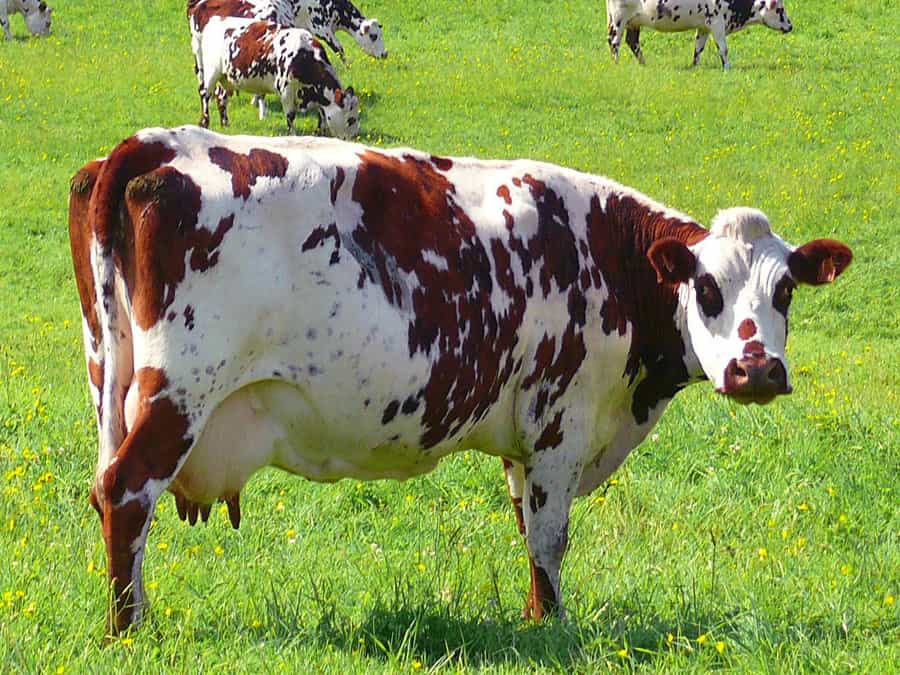
Lunch by the Watermill near Lisieux
After Camembert, you should head for a unique lunch at Le Moulin du Fossard.
Since 2018, Katy and Benoit Villeneuve have taken over this restaurant near Lisieux.
Previously, believe it or not, the building was a Camembert small factory, and even before, it was a chocolate factory. The water mill was the engine of the place. It now serves as a wine cooler for the best bottles of the place.
This place is not in or anywhere near a tourist spot yet, along a small road, but it has a serious, steady clientele of French Foodies who know what they are looking for when they come here. Each month, following the season, and the availability of local products, chef, Benoit changes the menu and takes a great pride in showcasing the essence of a beetroot, a spinach, a trout.
Benoit, who previously worked at Le Drakkar in Deauville, got tired of cuisine that had to slice more truffle, lobster, and caviar. Now, with simple yet amazing products, he focuses on subtle flavors for people who want a real gourmet lunch or dinner with no more show-off.
With Katy, he met in Deauville at Le Normandy Hotel, they fell in love with the place and now many locals are in love with this small restaurant. A true small jewel.
Calvados, the liquid gold of Normandy (Apple Brandy)
Normandy is also very famous for its distinctive liquor, the Calvados.
According to the legend, its recipe was invented in 1553 by a gentleman farmer from the Cotentin, the Lord of Gouberville. Yet, apples have been, for centuries, the fruit of the region.
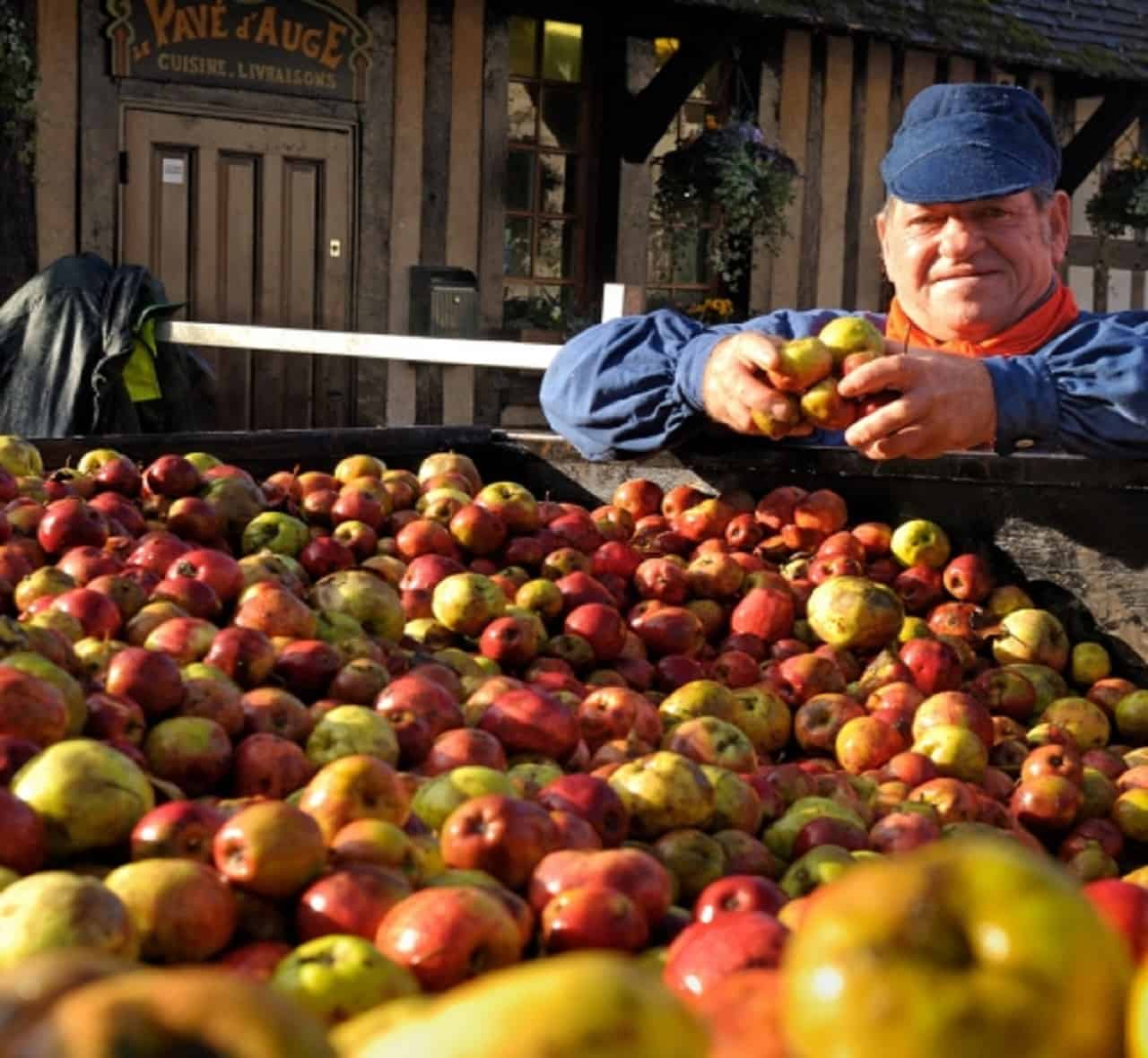
Normands have drank cider since the Romans, and William the Conqueror, grieved by sorrow after the death of his wife Mathilda in 1078, might not have said NO to some cider to forget the pain.
There are countless Calvados distilleries in the region. There is even a tourist road called the Road of the Cider, where one can, just like in Burgundy, stop almost every five minutes to try another type of unique spirit.
Calvados is a distilled version of cider. After distillation – in the Pays d’Auge, around Lisieux, Pont L’Evèque, we do a double distillation to get the best of the liquor – it has to age in oak barrels for at least five years to be smooth and pleasant.
It can age much more than five years. The older, the better, and the more pricey.
If I can recommend at least two distilleries in the region not too far from the restaurant, Le Moulin du Fossard, then I would recommend:
La Spiriterie Française at Le Breuil en Auge
In 2020, Mr Dussart bought this distillery and expanded the range of liquors produced as well as he clearly improved the visit of the distillery.
This distillery is set just on the way to the famous Trouville Deauville, at the exit of the A13 from Paris, near Pont L’Evèque.
It is also a Renaissance Chateau. The Chateau is now a B&B and can be rented for the week or weekend. Just ask the distillery, and they’ll be happy to explain to you how to rent the Chateau.
Of course, after the distillery tour, you will try most of the Calvados they produce. The bar where you can try these clearly reminds you of a trendy Parisian bar. They also serve delicious cocktails with young Calvados.
Calvados Experience
Another distillery I highly recommend nearby is the Calvados Experience in Pont l’Eveque.
This distillery, also known as Le Pere Magloire belongs to another French liquor group, Spirits of France.
Since 2020 as well, they created an immersive visit which takes you on a journey in the history and landscapes of Normandy region to show you why this product is really the true spirit of the place.
After the tour, a very Manhattan-like bar will allow you to sample all the Calvados they produce and even more.
An Ice-Cream in Honfleur
In the summer, if you still have some time, I would suggest you finish your day itinerary for Normandy with Honfleur.
Honfleur’s small docks of the lovely little port town, untouched since 1500, are now the perfect place for a cafe and an ice cream.
Yet, there are ice creams and ice creams.
Les Glaces de La Ferme du Bois Louvet
The one I always go to is Les Glaces de La Ferme du Bois Louvet.
It is just at the corner of the City Hall of Honfleur, by an art gallery. Their ice creams are made with 100% of the milk of this farm, which is used to make these delicious ice creams.
No preservatives, no artificial flavors.
And even more, they propose flavors no one else does any longer, like the delicious old-fashioned Plombiere flavor, made with almond extract, kirsch, and candied fruit.
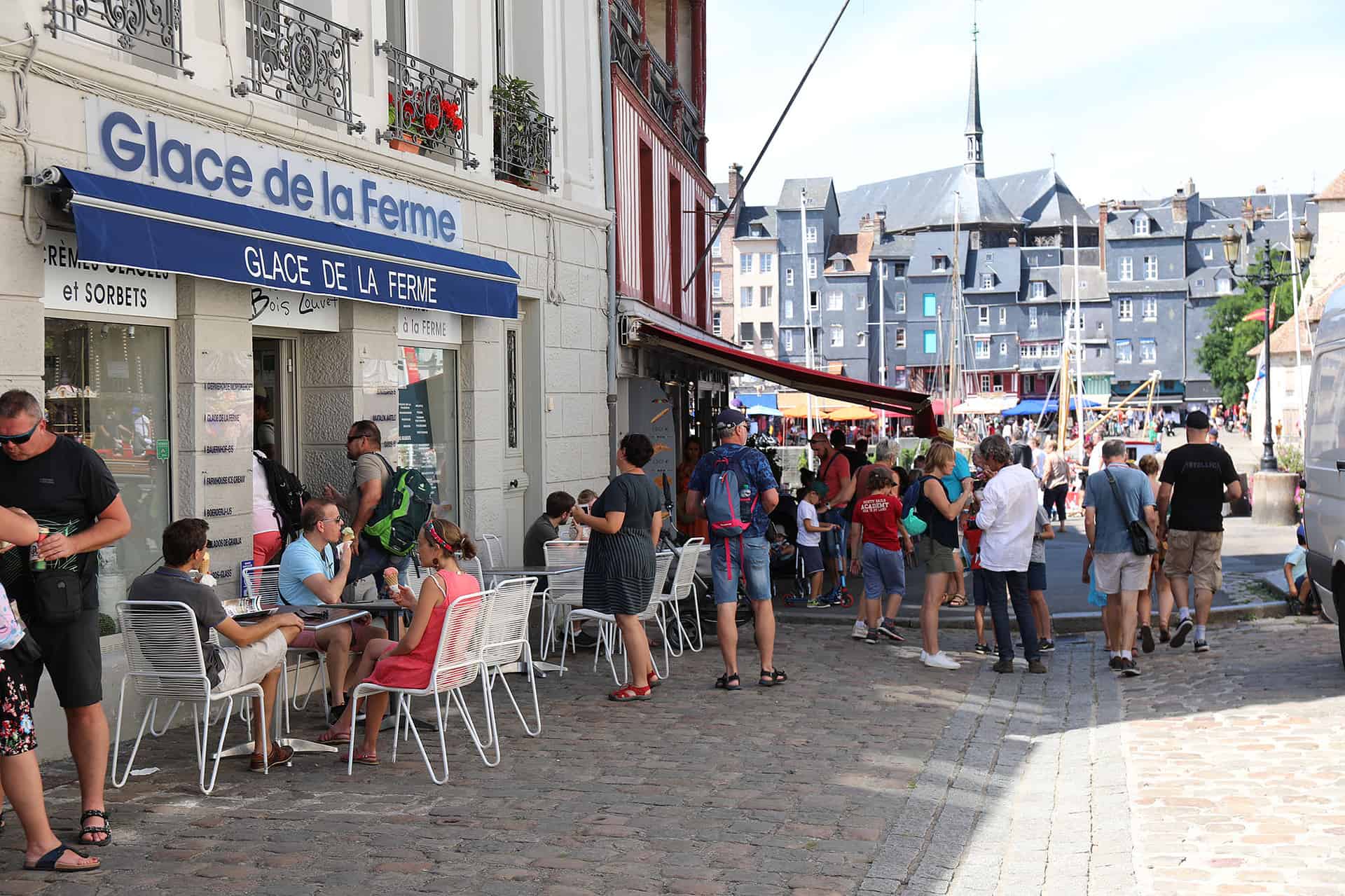
There is no better way to end this hard day’s work.
Bon voyage!
Normandy Food Tour
Experience the culinary delights of Normandy in just one day on this exciting small-group food tour from Caen.
Explore lesser-known parts of the region while enjoying breathtaking views of Trouville, Deauville and Honfleur. Meet local producers and learn about their craft as you sample famous Normandy delicacies such as Camembert, Pont L’évèque cheese, cider and calvados. Indulge in delicious meals at some of Normandy’s finest restaurants, including Michelin-starred establishments.
Your knowledgeable guide will also provide fascinating insights into the history of Normandy cuisine.
Enjoy convenient hotel pick-up and drop-off in Caen for a hassle-free experience. With a small group size, you’ll receive personalized attention throughout your trip.
Price: from €700 per group (up to 6)
Duration: 9 hours
Free cancelation up to 24 hours before
Mobile ticket
Tour in English, Italian, French or Spanish
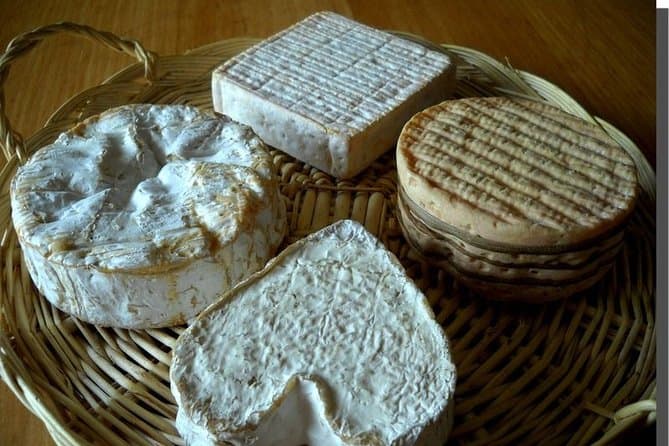
What’s included:
- Tasting several delicious dishes
- Comfortable transportation by air-conditioned minibus
- Expert guidance by friendly local guides
- Private tour to ensure exclusivity
What to Expect on your Normandy Food Tour
Begin your day with your guide’s tour of Lisieux Cathedral before enjoying lunch at a stunning 2-star Michelin restaurant on a picturesque river in the Pays d’Auge, an area known for its world-class racehorses. Afterward, indulge your palate with tastings at a cider and calvados distillery, where you can sample these exceptional liqueurs known for their unique flavors.
Continue to the Pays d’Auge itself to meet skilled cheesemakers who produce the traditional Pont L’évèque cheese and the creamy Douville en Auge cream cheese and gain insight into their time-honored techniques.
Finish your excursion with a visit to Honfleur; an enchanting seaside village whose impressionist charm inspired artists such as Eugène Boudin and Erik Satie. Return to Caen around 6pm after an unforgettable day exploring Norman gastronomy.
